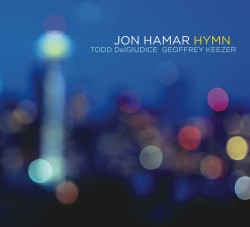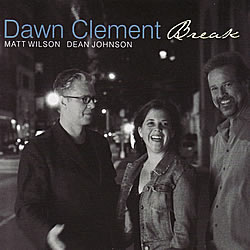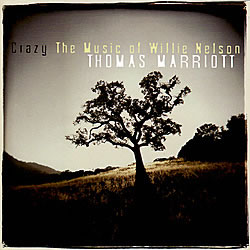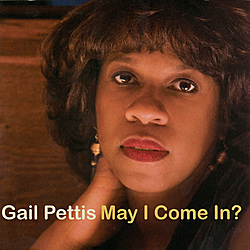from All About Jazz:
 In the twilight days of the compact disc as a sound storage device, the most compelling reason for keeping what still seems a “new” audio media (compared to wax cylinders and 78s) in the face of purely electronic media is “concept” or “thematic” releases. One such example was drummer Todd Bishop’s Pop Art 4 album, 69 Annee Erotique (Origin Records, 2009). This excellent release surveyed the music of French pop artist Serge Gainsbourg, music with popularity in Europe, little heard in the United States. Bishop used this collection of music as a vehicle for novel arrangements and improvisation, turning it into a more than familiar period sound and thereby achieving greater New World exposure for one of France’s greatest artists.
In the twilight days of the compact disc as a sound storage device, the most compelling reason for keeping what still seems a “new” audio media (compared to wax cylinders and 78s) in the face of purely electronic media is “concept” or “thematic” releases. One such example was drummer Todd Bishop’s Pop Art 4 album, 69 Annee Erotique (Origin Records, 2009). This excellent release surveyed the music of French pop artist Serge Gainsbourg, music with popularity in Europe, little heard in the United States. Bishop used this collection of music as a vehicle for novel arrangements and improvisation, turning it into a more than familiar period sound and thereby achieving greater New World exposure for one of France’s greatest artists.
Bishop has picked another enigmatic subject in Ornette Coleman, assembling a collection of never before covered compositions (save for “Lonely Woman”). Coleman’s enigma extends to the disc’s title, Little Played Little Bird. The “Little Played” represents the songs from Coleman’s book that are rarely covered. Coleman was never called “Little Bird” like Sonny Stitt or Frank Morgan, but the association could not have been clearer. As it turns out, the name Ornette literally means “Little Eagle” or “Little Bird” in Old English. Bishop does with this repertoire what he did with the Gainsbourg material; he refracts it through the prism of his experience, making something new and vital.
The music selected by Bishop covers 1959—”Lonely Woman” from The Shape of Jazz to Come (Atlantic)—to 1987—”Feet Music” from In All Languages (Caravan of Dreams). The band Bishop assembled to perform this rarified music is notable for the lack of an alto saxophone. Instead, Bishop heads up a quintet made up of Hristo Vitchev’s pianist Weber Iago, bass reeds player Richard Cole, tenor and soprano saxophonist Tim Willcox, and bassist Bill Athens. In contrast to much of Coleman’s work, Bishop’s inclusion of Iago on piano lends a greater harmonic depth, and therefore, a foundation to these ruminative compositions.
Bishop’s performances plumb the freedom inspired by Coleman while placing the composer’s song in a postmodern light. Most notably, the plaintive alto wail that is the hallmark of “Lonely Woman” is conspicuously absent, the underlying theme presented instead by Willcox on tenor and Cole cleverly on bass clarinet. Iago plays nervous, percussive dances in the background. Iago’s use of the Wurlitzer on “Friends and Neighbors” and “Country Town Blues” is very effective. For a collection based on music where the piano is anathema, Iago discharges himself admirably on both keyboards. The leader provides that vibe essential to the Coleman sound—that controlled chaos that so permeated post bop in the wake of John Coltrane’s classic quartet and Miles Davis’s second great quintet—freewheeling and solid.
Track Listing: Mothers of the Veil; Enfant; Feet Music; Comme Il Faut; Friends and Neighbors; Check Up; Country and Town Blues; Lonely Woman; Strange As It Seems.
Personnel: Richard Cole: bass clarinet, baritone, tenor and soprano saxophones; Tim Willcox: tenor and soprano saxophones; Weber Iago: piano, Wurlitzer; Bill Athens: bass; Todd Bishop: drums.
 Origin Arts bassist Jon Hamar effects an intimate trio with alto saxophonist Todd DelGiudice and pianist Geoffrey Keezer on Hymn. Heard most recently, prior to this date, on Richard Cole‘s Inner Mission (Origin Records, 2007), Hamar’s Hymn is heavy on introspective yet muscular originals, as Hamar also chooses some sturdy standards upon which to improvise.
Origin Arts bassist Jon Hamar effects an intimate trio with alto saxophonist Todd DelGiudice and pianist Geoffrey Keezer on Hymn. Heard most recently, prior to this date, on Richard Cole‘s Inner Mission (Origin Records, 2007), Hamar’s Hymn is heavy on introspective yet muscular originals, as Hamar also chooses some sturdy standards upon which to improvise. The three players who now call themselves Human Spirit—drummer
The three players who now call themselves Human Spirit—drummer  In the twilight days of the compact disc as a sound storage device, the most compelling reason for keeping what still seems a “new” audio media (compared to wax cylinders and 78s) in the face of purely electronic media is “concept” or “thematic” releases. One such example was drummer Todd Bishop’s Pop Art 4 album,
In the twilight days of the compact disc as a sound storage device, the most compelling reason for keeping what still seems a “new” audio media (compared to wax cylinders and 78s) in the face of purely electronic media is “concept” or “thematic” releases. One such example was drummer Todd Bishop’s Pop Art 4 album,  Most major American cities (and, for that matter, most European ones) contain a jazz musician who is the default bassist of record. You run into them all over town, in all manner of ensembles, kicking ass and taking names.
Most major American cities (and, for that matter, most European ones) contain a jazz musician who is the default bassist of record. You run into them all over town, in all manner of ensembles, kicking ass and taking names. Bassist Jeff Johnson has built a stellar reputation in jazz circles, having worked with pianists Hal Galper and Jessica Williams and appearing on over two-dozen recordings for the Seattle-based Origin Records. For his fourth release as a leader,
Bassist Jeff Johnson has built a stellar reputation in jazz circles, having worked with pianists Hal Galper and Jessica Williams and appearing on over two-dozen recordings for the Seattle-based Origin Records. For his fourth release as a leader,  Published by
Published by  Doug Miller‘s new CD,
Doug Miller‘s new CD,  by Andrew Hamlin, Seattle Sound Magazine
by Andrew Hamlin, Seattle Sound Magazine Legendary west coast saxophonist Hadley Caliman made his mark by touring and recording with the likes of Freddie Hubbard, Joe Henderson, Bobby Hutcherson and Santana. For Gratitude, his first recording as a leader in three decades, Caliman is joined by vibist Joe Locke, bassist Phil Sparks, drummer Joe LaBarbera and trumpeter Thomas Marriott, who also produced the recording.
Legendary west coast saxophonist Hadley Caliman made his mark by touring and recording with the likes of Freddie Hubbard, Joe Henderson, Bobby Hutcherson and Santana. For Gratitude, his first recording as a leader in three decades, Caliman is joined by vibist Joe Locke, bassist Phil Sparks, drummer Joe LaBarbera and trumpeter Thomas Marriott, who also produced the recording. Seattle newspaper The Stranger has a nice review of Thomas Marriott’s Crazy: The Music of Willie Nelson:
Seattle newspaper The Stranger has a nice review of Thomas Marriott’s Crazy: The Music of Willie Nelson: By John Barron,
By John Barron,  Trumpeter Cuong Vu, who is now teaching at the University of Washington in addition to his touring and recording, has two new reviews for his most recent CD, Vu-Tet.
Trumpeter Cuong Vu, who is now teaching at the University of Washington in addition to his touring and recording, has two new reviews for his most recent CD, Vu-Tet.
 Jazz Times writer and Yakima resident Doug Ramsey recently reviewed vocalist Gail Pettis’ new CD on his blog,
Jazz Times writer and Yakima resident Doug Ramsey recently reviewed vocalist Gail Pettis’ new CD on his blog,  Daniel Barry’s new CD, Walk All Ways (OA2 Records), was recently reviewed at AllAboutJazz.com
Daniel Barry’s new CD, Walk All Ways (OA2 Records), was recently reviewed at AllAboutJazz.com